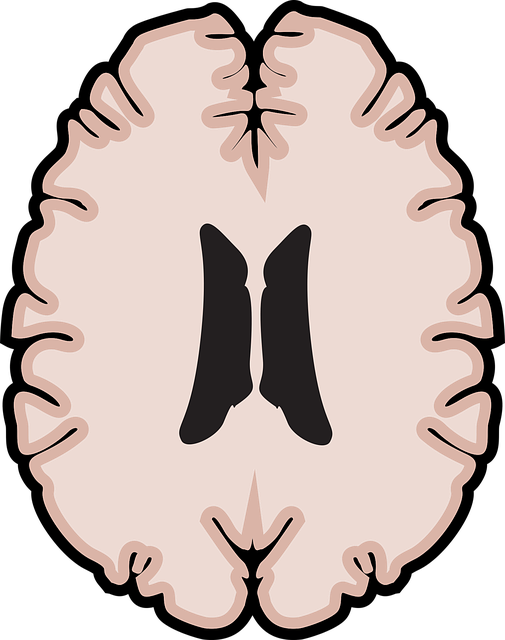Arvada American Sign Language (ASL) Therapy offers a unique cognitive training approach that combines ASL with positive thinking exercises to enhance mental well-being and daily life. By focusing on positive thoughts, individuals improve resilience, cope better with stress and anxiety, foster personal growth, and develop healthier thought patterns. The program incorporates tailored activities like guided meditations and journaling prompts to encourage self-care, gratitude, and reflection on personal strengths. ASL's non-verbal communication stimulates brain activity and promotes community, making it particularly beneficial for those who struggle with traditional verbal communication during therapy. With digital platforms offering personalized feedback and virtual support groups, positive thinking exercises through ASL Therapy are gaining traction, promising enhanced resilience and emotional agility.
Positive thinking exercises are gaining traction as powerful tools for enhancing well-being. This article explores the transformative potential of such practices, highlighting innovative approaches like Arvada American Sign Language (ASL) Therapy, which combines cognitive training with ASL to reframe thoughts. We delve into designing effective exercises, integrating ASL techniques, and analyzing the benefits, challenges, and future prospects of these programs. By embracing unique methods like ASL therapy, we can unlock new paths towards positive mental health.
- Understanding Positive Thinking and its Impact on Well-being
- Arvada American Sign Language Therapy: A Unique Approach to Cognitive Training
- Designing Effective Positive Thinking Exercises
- Implementing ASL (American Sign Language) in Cognitive Reframing Techniques
- Benefits, Challenges, and Future Prospects of Positive Thinking Exercise Programs
Understanding Positive Thinking and its Impact on Well-being

Positive thinking is a powerful tool that can significantly impact an individual’s overall well-being and daily life. It involves training the mind to focus on positive thoughts, beliefs, and expectations, which can lead to improved mental health and resilience. By adopting a positive mindset, individuals can enhance their ability to cope with stress, anxiety, and challenges. This practice encourages personal growth, fosters better relationships, and promotes a sense of optimism and purpose.
In the context of Arvada American Sign Language Therapy, understanding positive thinking is crucial when considering communication strategies and inner strength development. Crisis intervention guidance often begins with helping individuals recognize and reframe negative thoughts. By implementing positive thinking exercises, therapists can assist clients in building mental fortitude, improving self-esteem, and developing more adaptive coping mechanisms. This, in turn, enables them to navigate life’s obstacles with enhanced confidence and a brighter perspective.
Arvada American Sign Language Therapy: A Unique Approach to Cognitive Training

Arvada American Sign Language Therapy offers a unique and innovative approach to cognitive training, emphasizing the power of non-verbal communication in enhancing mental well-being. This therapeutic method goes beyond traditional talk therapy by engaging individuals in the expressive world of American Sign Language (ASL). Through sign language, clients can explore and transform their thoughts, emotions, and beliefs, leading to significant improvements in self-esteem and overall cognitive flexibility.
By learning ASL, individuals not only develop a valuable communication skill but also gain a new lens through which to perceive themselves and the world around them. This process encourages self-care practices, fosters a sense of community, and can be particularly effective in preventing burnout. The rhythmic nature of sign language and its kinesthetic components stimulate different parts of the brain, promoting neuroplasticity and supporting the development of healthier thought patterns.
Designing Effective Positive Thinking Exercises

Designing effective positive thinking exercises involves tailoring activities that resonate with individual needs and preferences. At the Arvada American Sign Language Therapy center, therapists often incorporate creative strategies to foster mental wellness. These might include guided meditations focused on gratitude, where individuals visualize and appreciate positive aspects of their lives, enhancing optimism. Additionally, journaling prompts encourage reflection on personal strengths, achievements, and future aspirations, promoting a growth mindset.
Self-care routine development is integral to these exercises, emphasizing the importance of mental wellness coaching programs. By incorporating regular practices that cultivate positivity, individuals can build resilience against stress and challenge negative thought patterns. Confidence boosting techniques, such as affirmations and positive self-talk, empower participants to reframe their perspectives, ultimately contributing to improved overall well-being.
Implementing ASL (American Sign Language) in Cognitive Reframing Techniques

Incorporating American Sign Language (ASL) into cognitive reframing techniques offers a powerful approach to positive thinking exercises, particularly for individuals in Arvada seeking alternative communication strategies. ASL Therapy provides a unique avenue for clients to explore their inner strength and develop resilience through non-verbal expression. By utilizing signs, gestures, and facial expressions, therapists can guide participants in reframing negative thoughts and replacing them with more positive and empowering alternatives. This method is especially beneficial for those who may struggle with traditional verbal communication during therapeutic processes.
For healthcare providers looking to prevent burnout, integrating ASL into their practice adds a dimension of inclusivity and creativity. It allows professionals to connect with patients on a deeper level while promoting open dialogue. Moreover, teaching ASL signs related to emotions and cognitive strategies can enhance the overall therapeutic experience, fostering better patient engagement and outcomes. This innovative approach not only supports communication but also contributes to the development of inner strength and burnout prevention strategies tailored to each individual’s needs.
Benefits, Challenges, and Future Prospects of Positive Thinking Exercise Programs

Positive thinking exercises have gained significant attention in recent years due to their profound benefits on mental health and overall well-being. These programs encourage individuals to cultivate a more optimistic outlook, which can lead to improved emotional intelligence and enhanced coping mechanisms. Studies show that regular practice of positive thinking can reduce stress levels, boost confidence, and even improve physical health markers. For instance, the Arvada American Sign Language Therapy (ASLT) program has incorporated positive thinking exercises into its curriculum, demonstrating the versatility of this approach in diverse therapeutic settings.
Despite their advantages, implementing positive thinking exercise programs comes with challenges. One significant hurdle is ensuring cultural competency among healthcare providers, especially when catering to diverse communities. Training programs like Cultural Competency Training for healthcare professionals can address this issue by equipping them with the skills to tailor positive thinking interventions to different cultural backgrounds. Additionally, maintaining motivation and consistency in practicing these exercises over time poses a challenge. Future prospects, however, look promising with advancements in technology offering accessible digital platforms that make these programs more engaging and adaptable. Incorporating features like personalized feedback and virtual support groups can further enhance the effectiveness of positive thinking exercises for individuals seeking to build resilience and emotional agility.
The implementation of positive thinking exercises, such as those incorporated into the innovative Arvada American Sign Language Therapy program, offers a promising approach to enhancing cognitive well-being. By combining ASL with cognitive training techniques, these programs can provide unique and accessible pathways to reframing negative thoughts. As research continues to highlight the significant impact of positive thinking on overall health and happiness, further exploration and development of these exercise regimes are essential. The future of positive thinking interventions lies in their integration into mainstream mental health practices, making them widely available to those seeking improved cognitive flexibility and emotional resilience.













